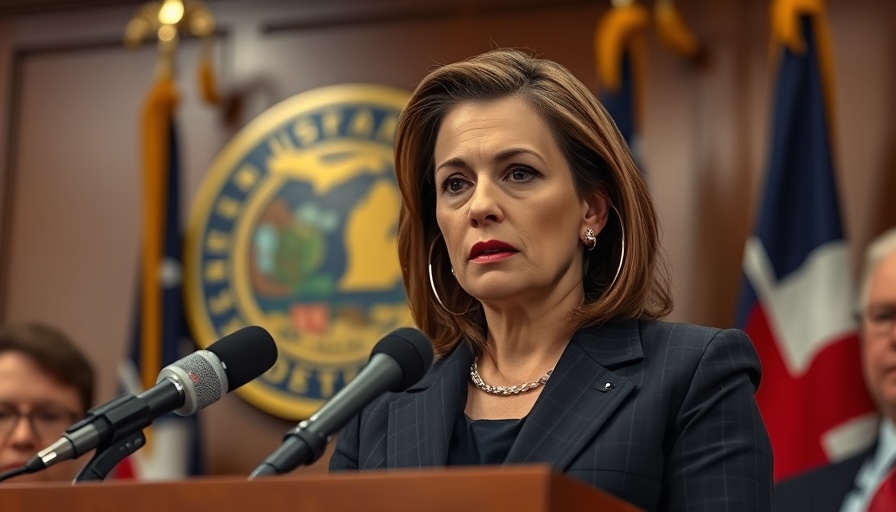
Michigan's Health System Faces Unprecedented Cuts
In a significant legal move, Michigan Attorney General Dana Nessel has taken a stand against the Trump administration, filing a lawsuit aimed at reversing the cancellation of approximately $380 million in federal health care grants for the state. This lawsuit is part of a broader coalition representing 23 states and the District of Columbia, which argues that the administration's abrupt decision to cancel over $12 billion in federal grants was illegal and unjustified.
The Impacts of Funding Cuts on State Health Services
The financial cuts have a significant impact on various essential services, especially amid ongoing public health challenges. Local health departments, which rely heavily on these grants, are now facing immediate threats to their ability to provide vaccinations, assist with mental health crises, and offer substance abuse intervention programs. Nessel emphasized the critical nature of these services in her statement, noting that the termination of such funding jeopardizes not only public health infrastructure but also individual lives.
Understanding the Lawsuit: What’s at Stake?
Nessel's lawsuit is not just about the funds; it's about holding the federal government accountable for its actions. This legal action seeks a temporary restraining order to pause the grant cancellations as the case proceeds in the U.S. District Court in Rhode Island. The Attorney General articulated the urgency of fighting for these funds, stating, "These programs keep Michigan healthy and, in some cases, help save lives." This statement underscores the critical role that these grants play in combating current public health issues exacerbated by the COVID-19 pandemic.
A Broader Context: National Health Care Funding Challenges
This lawsuit emerges in a broader context of ongoing disputes over healthcare funding across the nation. Many states are already struggling with the repercussions of the federal cuts, which have left local health departments scrambling for resources. The cancellation of these grants comes at a time when public health programs are particularly vulnerable, highlighting the fragile nature of state funding in crisis situations.
The Role of Federal Funding in State Health Outcomes
Federal grants represent a lifeline for health services—especially in states like Michigan where public health initiatives have been underfunded. These grants support critical health department functions, from vaccination clinics for children to complex mental health and substance abuse interventions. The loss of these funds may lead to increased disease spread and deeper mental health crises, which in turn places further strain on state and local hospitals.
Counterarguments: Perspectives on Federal Cuts
While Nessel's lawsuit presents a strong case for the necessity of these funds, there are differing opinions across the political spectrum regarding the cuts. Some argue that reducing federal health spending is essential for fiscal responsibility, especially in light of national debt concerns. This perspective often views such cuts as an opportunity for states to seek alternative funding mechanisms or innovate their health funding strategies.
Looking Ahead: What’s Next for Michigan’s Health Services
As Michigan navigates this legal battle, the outcome will have lasting implications for the state's health services and public health policy. If Nessel's lawsuit succeeds, it could set a precedent for other states facing similar funding dilemmas. Conversely, a defeat might prompt states to rethink their reliance on federal funding and explore more sustainable local funding sources.
The tension between state and federal health policy continues to highlight the complexities of healthcare funding. As Michigan works to secure vital health resources, it becomes increasingly clear that the implications of these cuts transcend hospitality—they touch the lives of those struggling with disease and addiction across the state.
 Add Row
Add Row  Add
Add 




 Add Row
Add Row  Add
Add 

Write A Comment